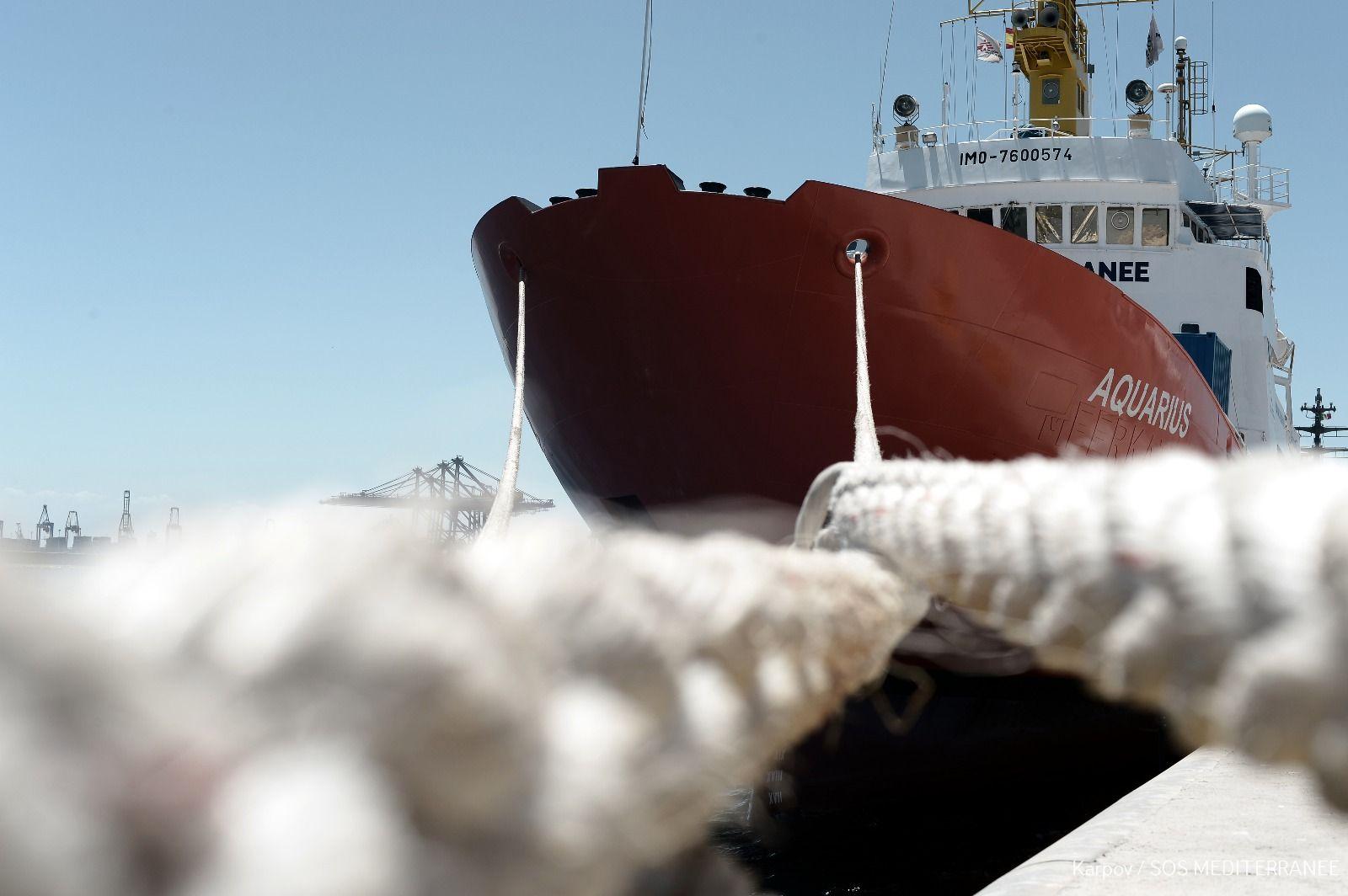The rescue boat Aquarius, run in partnership between SOS MEDITERRANEE and Médecins Sans Frontières (MSF), sets sail today from Marseille after an extended port call. Aquarius is heading back to the Central Mediterranean in order to render assistance to persons in distress at sea.
“The Central Mediterranean route is the deadliest in the world,” said Aloys Vimard, MSF’s Project Coordinator on board the Aquarius. “There are hardly any rescue ships left in the Central Mediterranean and no dedicated search and rescue capacity from European states. Humanitarian assistance at sea is desperately needed now more than ever. Rescuing people in distress at sea remains a legal and moral obligation. Over 700 people have drowned in past few weeks. This contempt for human life is horrifying.”
In over two years of uninterrupted search and rescue operations in Central Mediterranean, this was the first time that Aquarius was in port for more than one month. The extended stay was the result of significant contextual changes that have taken place in Central Mediterranean that have severely affected rescue operations. Political disputes over ports of disembarkation have left ships that have rescued people at sea stranded for weeks at a time. Humanitarian organisations saving lives at sea have been criminalised and blocked from ports in Italy and Malta.
Despite European states being fully aware of the alarming level of violence and exploitation which refugees, migrants and asylum-seekers suffer in Libya, the transfer of coordination responsibilities to the EU-supported Libyan Coast Guard was ramped up even further and anew Libyan Joint Rescue Coordination Centre (JRCC) was recognised by the International Maritime Organisation (IMO) at the end of June. Inside Libya, refugees, asylum-seekers and migrants continued to be arbitrarily detained in overcrowded and inhumane detention centres where the humanitarian assistance provided fails to address the rising needs.
“Despite the increasingly complex situation on the Central Mediterranean, our objective remains the same as it was at the start which is to save lives at sea; to prevent men, women and children from drowning, and to bring them to a place of safety where their basic needs are met and their rights protected and guaranteed” said Vimard.
As Aquarius heads back to the Central Mediterranean, MSF and SOS MEDITERRANEE teams onboard re-affirm that:
- Aquarius will continue to rescue persons in distress at sea with full respect to maritime law.
- Aquarius will continue to coordinate with all relevant maritime authorities in respect of international maritime conventions.
- Aquarius cannot comply with instructions to delay rendering assistance to persons in distress at sea if there is no certainty that all other available means and assets have been deployed to assist those in danger and bring them to a place of safety.
- Aquarius will not disembark people rescued at sea in Libya. Libya is not a place of safety for refugees, asylum-seekers and migrants. A place of safety is where their basic needs are met, but also a place where they can seek the protection they might be entitled to and where they are not at risk of further abuses and violations - which Libya cannot be considered for the time being.
- Refugees, asylum-seekers and migrants intercepted at sea should not be returned to Libya. Therefore, Aquarius is obliged to refuse any instruction by maritime authorities to disembark people rescued at sea in Libya, or to transfer people rescued at sea onto any ship that would disembark them in Libya.
